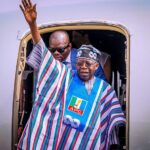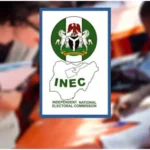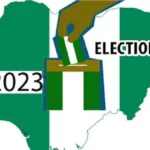There has been a drop in the number of advertisements sponsored by political parties and their candidates in the media as Nigerians go for general elections tomorrow.
Daily Trust findings through monitoring of last-minute spending on advertisements by major political parties – the APC and PDP – have shown that there was huge drop on the frequency of placement compared to the 2015 elections.
Analysis of most of the broadcast stations revealed that unlike in 2015 where political parties sponsored documentaries and live transmissions, this time around, there are a fewer number of commercials on television and radio stations.
The ruling APC always transmitted its presidential campaigns live on at least two TV stations. On the other hand, not all the presidential campaigns of the opposition PDP were transmitted live via television.
On the part of the newspapers, the adverts revenue didn’t flow as it did during the 2015 elections. In 2015, the major national dailies got a couple of wrap-around ads (a type of newspaper adverts that covers the entire front page or half, and the back page). In 2019, there were two instances where the APC and Rivers State government sponsored the wrap around in major newspapers.
Social media takes the show
The emergence of social media and economic downturn are some of the factors responsible for low media adverts during the 2019 campaigns, a communication expert and founder of PRNigeria, Yushau A. Shuaib, told Daily Trust last night.
He said it’s evident that social media has become “a force to reckon with in the media industry.” He said politicians channel their campaign messages through the social media platforms. “The role of social media influencers, bloggers, and social entrepreneurs is very evident now. They are hired by politicians to reach their targets,” he said.
The social media incursion has slowed down the adverts traffic to the traditional media by political advertisers. “Adverts published on print newspapers are hardly available online. The online content is mostly free, while print newspapers are not. You have to buy a print newspaper to read the adverts. It is not the case for online content,” he said.
Mr Shuaib said the economic downturn is another factor that affects the adverts flow during this campaign. “There is no much money in circulation now compared to 2015 elections. The activities of anti-graft agencies in tracking accounts of politicians have also contributed. Politicians are now more cautious,” he said.
He said the perceived “antagonistic” posture of the traditional media to the government in power is another factor. “The belief in the corridors of power is that the major newspapers still publish ‘negative stories’ despite the adverts patronage. Then why waste resources on them,” he said.
Elections not won by adverts
The Managing Director of Integrated Indigo, Bolaji Abimbola, told Daily Trust that desperation by politicians was responsible for the huge amount of money spent on adverts in 2015.
“I think the way to look at it is that what happened in 2015 which was seen as a boom was as a result of the desperation of political parties then, from the ruling Peoples Democratic Party and the then opposition APC,” he said.
Mr Abimbola said it could also be that “politicians now know that elections are not won by the volume of press adverts deployed on social media traction but it is persuasive communication that can sway voters in your favour,”
He said, “ordinarily, advert revenue for newspapers should come from business/brand advertising and not political campaigns because, in the first place, it is not sustainable.”
Blocking fake news and foreign interference
The social media dominance has its own challenges which include fake news and foreign interference. The Facebook, for instance, has developed a strategy of “preventing foreign interference” during Nigeria’s elections.
“As we prepare for major elections around the world this year, we’re continuing our focus on preventing foreign interference and giving people more information about the ads they see across our platforms,” the social media platform said.
Parts of the new strategy in Nigeria, according to Facebook, is “We’ll temporarily expand enforcement and not accept foreign electoral ads around their elections, starting with Nigeria on January 16.”
“By shining a light on political ads, news organizations, regulators, watchdog groups and people anywhere in the world can hold advertisers and us more accountable,” it said.
Low adverts revenue
Both the APC and PDP, whose presidential candidates are believed to be the leading contestants, have placed various commercials on national TV and radio stations as observed by Daily Trust.
Some of the TV stations monitored for the last-minute adverts, included NTA, Channels TV, AIT, among others.
On Channels TV, Daily Trust observed that the station ran a live coverage for the PDP grand rally in Sokoto state for both governorship and presidential polls yesterday.
Live coverage on the Channels goes for N5 million for one hour and N15 million under ‘Sunrise Live Coverage’ for two hours, according to information obtained from the station’s website.
Also, the station had between Wednesday and yesterday ran the routine commercials for the leading presidential candidates, President Muhammadu Buhari of the APC and Atiku Abubakar of the PDP, especially during its prime-time news at 10.pm.
It was also observed that the presidential candidate of the Fresh Democratic Party (FDP), Rev Chris Okotie, also had his commercial ran on Channels TV.
For example, the TV station ran commercials for Buhari, Atiku, and Okotie for at least two slots during its main news broadcast at 10.pm every day, with each running for about 30 seconds.
Our correspondent observed that there were also two separate Buhari commercials that featured twice during the Channels’ 2-hour morning show ‘Sunrise Daily’ yesterday at different intervals.
Based on the commercial rates of the Channels, a 30-minute commercial during the 10.pm news attracts N352,123 with a 50 percent surcharge for a political placement.
A 60-second commercial in the morning hours goes for N27,646 per slot, according to the station’s advert rates.
On the part of the AIT, for instance, on Wednesday, the station during its 8 pm news programme aired three slots of adverts – two slots for Atiku, and one for Buhari.
Also, the station during its 6 pm programme, with the title, ‘Nigerians Vote,’ aired one PDP commercial.
Yesterday, by 2 am, the station aired a PDP commercial on its news programme. It also during its programme ‘People Politics and Power’ aired at 1 pm ran an advert for Atiku.
The station also ran a live transmission of PDP campaign rally in Yola, Adamawa state from 3:45 pm to 4:31 pm yesterday.
For the NTA, at the peak period between 8 pm and 10 pm on Wednesday, the network aired seven commercials for APC and two for PDP.
An online data of NTA’s commercial rate showed that four of the APC’s campaign commercials aired during this period cost N472, 500 each while the remaining three goes by N630, 000 each. That of the PDP cost N472, 500 and N630, 000 each.

 Join Daily Trust WhatsApp Community For Quick Access To News and Happenings Around You.
Join Daily Trust WhatsApp Community For Quick Access To News and Happenings Around You.


